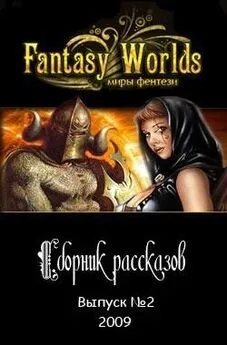Пользователь - WORLDS END
- Название:WORLDS END
- Автор:
- Жанр:
- Издательство:неизвестно
- Год:неизвестен
- ISBN:нет данных
- Рейтинг:
- Избранное:Добавить в избранное
-
Отзывы:
-
Ваша оценка:
Пользователь - WORLDS END краткое содержание
WORLDS END - читать онлайн бесплатно полную версию (весь текст целиком)
Интервал:
Закладка:
Such was the faith of all art lovers of the year 1913; such was the creed being taught in the tall white temple upon the bright meadow. In these fortunate modern days the spread of civilization had become automatic and irresistible. Forty-two years had passed since Europe had had a major war, and it was evident to all that love and brotherhood were stealing into the hearts of the furies, and that Orpheus was conquering with his heaven-sent voice and golden lyre.
IV
All Lanny Budd's young life he had played around with music. Wherever he was taken, there was always a piano, and he had begun picking at the keys as soon as he was old enough to climb upon a stool. He remembered snatches of everything he heard, and as soon as he got home would lose himself in the task of reproducing them. Now he had discovered a place where he could play music with arms and legs and all the rest of him; where he could stand in front of a mirror and see music with his eyes! He was so excited about it that he could hardly wait to jump into his clothes in the morning before dancing downstairs.
At Hellerau they taught you an alphabet and a grammar of movement. With your arms you kept the time; a set of movements for three-part time, another for four, and so on. With your feet and body you indicated the duration of notes. It was a kind of rhythmic gymnastics, planned to train the body in quick and exact response to mental impressions. When you had mastered the movements for the different tempi, you went on to more complex problems; you would mark three-part time with your feet and four-part time with your arms. You would learn to analyze and reproduce complicated musical structures; expressing the rhythms of a three-part canon by singing one part, acting another with the arms, and a third with the feet.
To Lanny the lovely part about this school was that nobody thought you were queer because you wanted to dance; everybody understood that music and motion went together. At home people danced, of course, but it was a formal procedure, for which you dressed especially and hired musicians who played a special kind of music, the least interesting, and everybody danced as nearly the same way as possible. If a little boy danced all over the lawn, or through the pine woods, or down on the beach - well, people might think it was "cute," but they wouldn't join him.
Lanny was getting to an age where people would be expecting him to acquire dignity. He couldn't go on capering around, at least not unless he was going to take it up as a career and make money out of it. But here was this school, to provide him with a label and a warrant, so to speak. His mother would say: "There's Lanny, doing his Dalcroze." Lady Eversham-Watson would put up her ivory and gold lorgnette and drawl: "Oh, chawming!" The Baroness de la Tourette would lift her hands with a dozen diamonds and emeralds on them and exclaim: "Ravissant!" "Dalcroze" was the rage.
So Lanny worked hard and learned all he could during these precious weeks while his mother was away on the yacht of the gentleman who had invented Bluebird Soap and introduced it into several million American kitchens. Lanny would steal into a room where a group of boys and girls were practicing; nobody objected if a graceful and slender lad fell in and tried the steps. If he had ideas of his own he would go off into a corner and work them out, and nobody would pay any attention, unless he was doing it unusually well. There was dancing all over the place, in bedrooms and through corridors and out on the grounds; everybody was so wrapped up in his work that there would have been no special excitement if Queen Titania and her court had appeared, marking with their fairy feet the swift measures of the Midsummer-Night's Dream overture.
V
Lanny Budd had made two special friendships that summer. Kurt Meissner came from Silesia, where his father was comptroller-general of a great estate, a responsible and honorable post. Kurt was the youngest of four sons, so he did not have to become a government official or an officer in the army; his wish to conduct and possibly to compose music was respected, and he was learning in the thorough German way all the instruments which he would have to use. He was a year older than Lanny and half a head taller; he had straw-colored hair clipped close, wore pince-nez, and was serious in disposition and formal in manners. If a lady so much as walked by he rose from his chair, and if she smiled he would click his heels and bow from the waist. What he liked about the Dalcroze system was that it ivas a system; something you could analyze and understand thoroughly. Kurt would always obey the rules, and be troubled by Lanny's free and easy American way of changing anything if he thought he could make it better.
The English boy had a complicated name, Eric Vivian Pomeroy-Nielson; but people had made it easy by changing it to Rick. He was going to be a baronet some day, and said it was deuced uncomfortable, being a sort of halfway stage between a gentleman and a member of the nobility. It was Rick's idea of manners never to take anything seriously, or rather never to admit that he did; he dressed casually, made jokes, spoke of "ridin' " and "shootin'," forgot to finish many of his sentences, and had chosen "putrid" as his favorite adjective. He had dark hair with a tendency to curl, which he explained by the remark: "I suppose a Jew left his visiting card on my family." But with all his pose, you would make a mistake about Eric Pomeroy-Nielson if you did not realize that he was learning everything he could about his chosen profession of theater: music, dancing, poetry, acting, elocution, stage decoration, painting - even that art, which he said was his father's claim to greatness, of getting introduced to rich persons and wangling their cash for the support of "little theaters."
Each of these boys had a contribution to make to the others. Kurt knew German music, from Bach to Mahler. Lanny knew a little of everything, from old sarabands to "Alexander's Ragtime Band," a recent "hit" from overseas. As for Rick, he had been to some newfangled arts-and-crafts school and learned a repertoire of old English folk songs and dances. When he sang and the others danced the songs of Purcell, with so many trills and turns, and sometimes a score of notes to a syllable, it became just what the song proclaimed - "sweet Flora's holiday."
All three of these lads had been brought up in contact with older persons and were mature beyond their years. To Americans they would have seemed like little old men. All three were the product of ripe cultures, which took art seriously, using it to replace other forms of adventure. All were planning art careers; their parents were rich enough - not so rich as to be "putrid," but so that they could choose their own activities. All three looked forward to a future in which art would go on expanding like some miraculous flower. New "sensations" would be rumored, and crowds of eager and curious folk would rush from Paris to Munich to Vienna, from Prague to Berlin to London - just as now they had come flocking to the tall white temple on the bright meadow, to learn how children could be taught efficiency of mind and body and prepared for that society of cultivated and gracious aesthetes in which they were expecting to pass their days.
On a wide plain just below Hellerau was an exercise ground of the German army. Here almost every day large bodies of men marched and wheeled, ran and fell down and got up again. Horses galloped, guns and caissons rumbled and were swung about, unlim-bered, and pointed at an imaginary foe. The sounds of all this floated up to the tall white temple, and when the wind was right, the dust came also. But the dancers and musicians paid little attention to it. Men had marched and drilled upon the soil of Europe ever since history began; but now there had been forty-two years of peace, and only the old people remembered war. So much progress had been made in science and in international relations that few men could contemplate the possibility of wholesale bloodshed in Europe. The art lovers were not among those few.
VI
When the summer season at the school was over, Lanny went to join his mother. He had tears in his eyes when he left Hellerau; such a lovely place, the only church in which he had ever worshiped. He told himself that he would never forget it; he promised his teachers to come back, and in the end to become a teacher himself. He promised Rick to see him in England, because his mother went there every "season," and if he tried hard he could persuade her to take him along.
As for Kurt, he was traveling with Lanny to the French Riviera ; for the German lad had an aunt who lived there, and he had suggested paying her a visit of a couple of weeks before his school began. He had said nothing to her about an American boy who lived near by, for it was possible that his stiff and formal relative would not approve of such a friend. There were many stratifications among the upper classes of Europe, and these furies had never yielded to the lure of Orpheus and his lute.
Kurt was like an older brother to Lanny, taking charge of the travel arrangements and the tickets, and showing off his country to the visitor. They had to change trains at Leipzig, and had supper in a sidewalk cafe, ordering cabbage soup and finding that the vegetable had been inhabited before it was cooked. "Better a worm in the cabbage than no meat," said Kurt, quoting the peasants of his country.
Lanny forgot his dismay when they heard a humming sound overhead and saw people looking up. There in the reddish light of the sinking sun was a giant silver fish, gliding slowly and majestically across the sky. A Zeppelin! It was an achievement dreamed of by man for thousands of years, and now at last brought to reality in an age of miracles. German ingenuity had done it, and Kurt talked about it proudly. That very year German airliners had begun speeding from one city to another, and soon they promised air traffic across all the seas. No end to the triumphs of invention, the spread of science and culture in the great capitals of Europe!
The boys settled themselves in the night express, and Lanny told his friend about "Beauty," whom they were to meet in Paris. "Her friends all call her that," said the boy, "and so do I. She was only nineteen when I was born." Kurt could add nineteen and thirteen and realize that Lanny's mother was still young.
"My father lives in America," the other continued; "but he comes to Europe several times every year. The name Budd doesn't mean much to a German, I suppose, but it's well known over there; it's somewhat like saying Krupp in Germany. Of course the munitions plants are much smaller in the States; but people say Colt, and Remington, and Winchester - and Budd."
Lanny made haste to add: "Don't think that my parents are so very rich. Robbie - that's my father - has half a dozen brothers and sisters, and he has uncles and aunts who have their own children. My mother divorced my father years ago, and Robbie now has a wife and three children in Connecticut, where the Budd plants are. So you see there are plenty to divide up with. My father has charge of the sales of Budd's on the Continent, and I've always thought I'd be his assistant. But now I think I've changed my mind - I like 'Dal-croze' so much."
VII
Beauty Budd did not come to the station; she seldom did things which involved boredom and strain. Lanny was such a bright boy, he knew quite well how to have his bags carried to a taxi, and what to tip, and the name of their regular hotel. His mother would be waiting in their suite, and it would be better that way, because she would be fresh and cool and lovely. It was her business to be that, for him as for all the world.
Читать дальшеИнтервал:
Закладка:




![Галина Романова - Лицензия на happy end [litres]](/books/1058996/galina-romanova-licenziya-na-happy-end-litres.webp)
